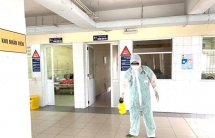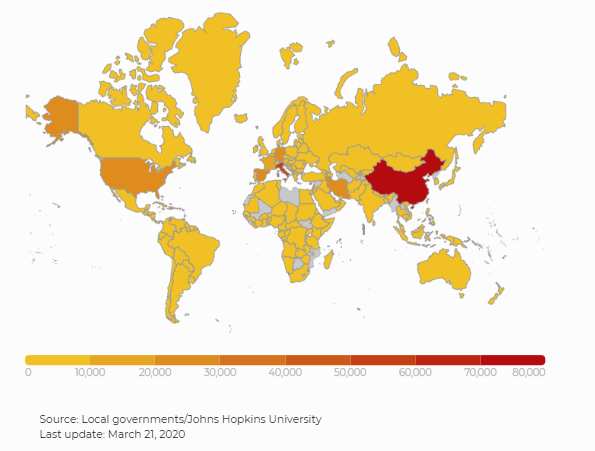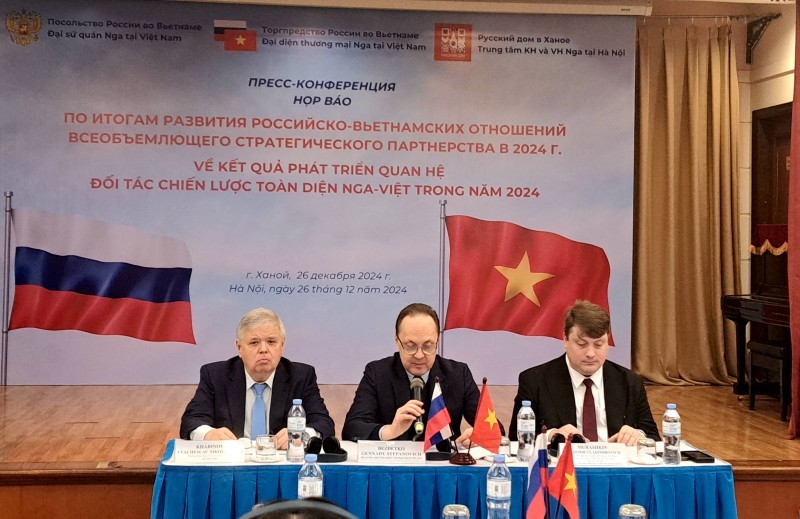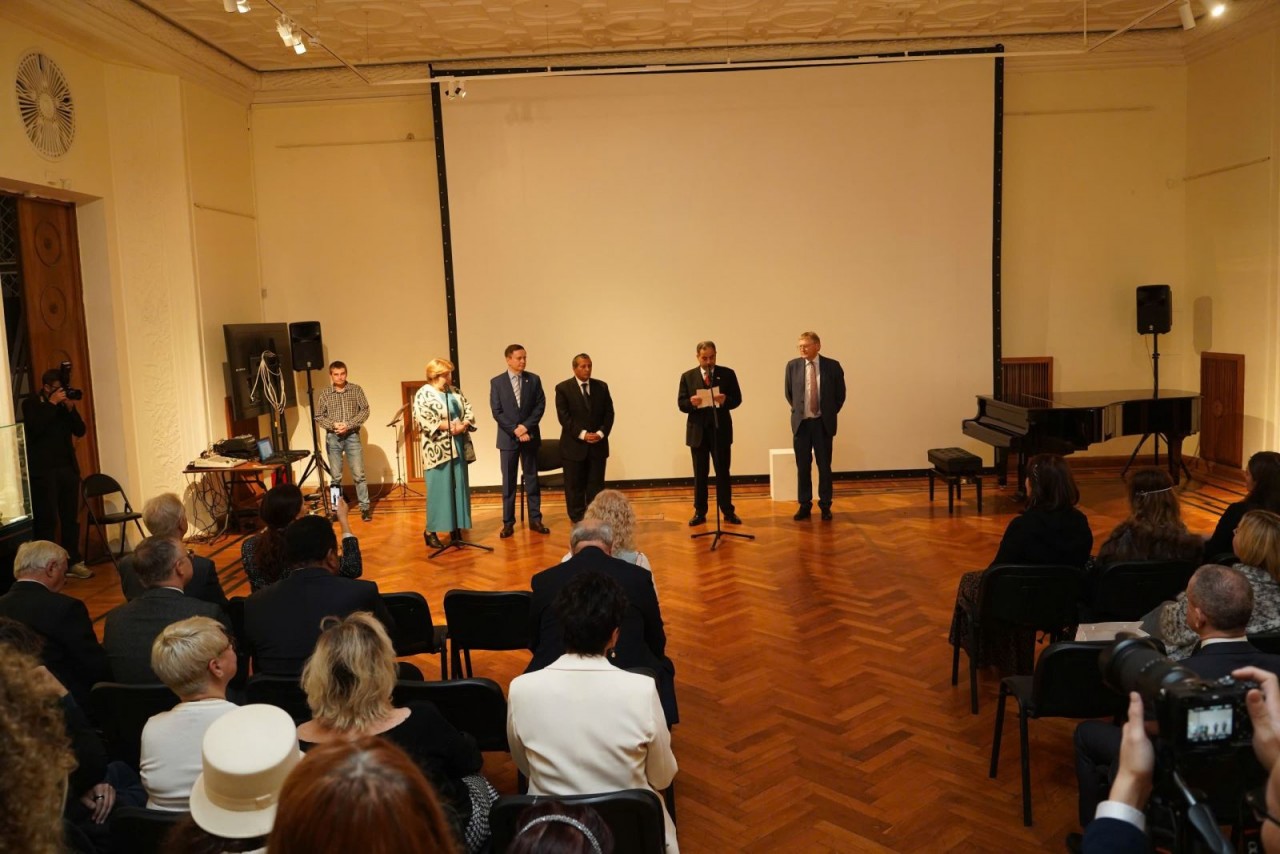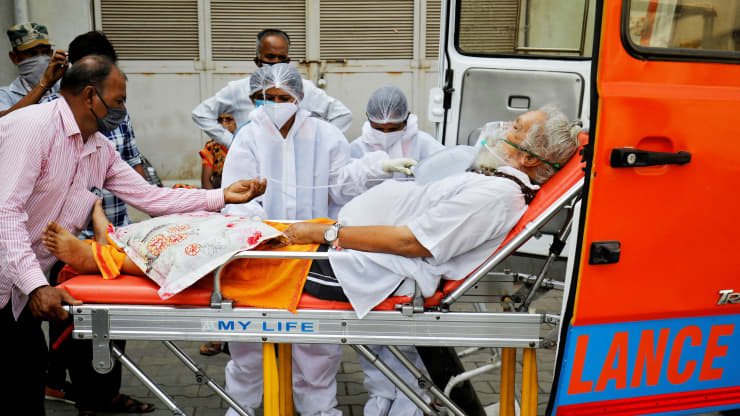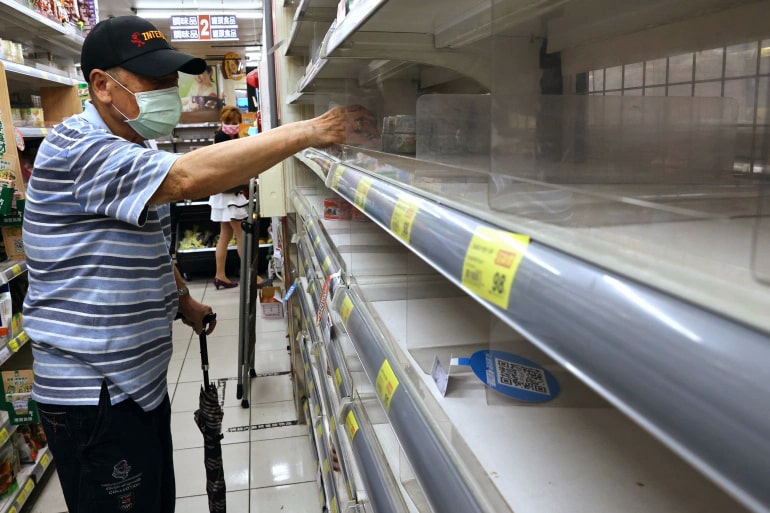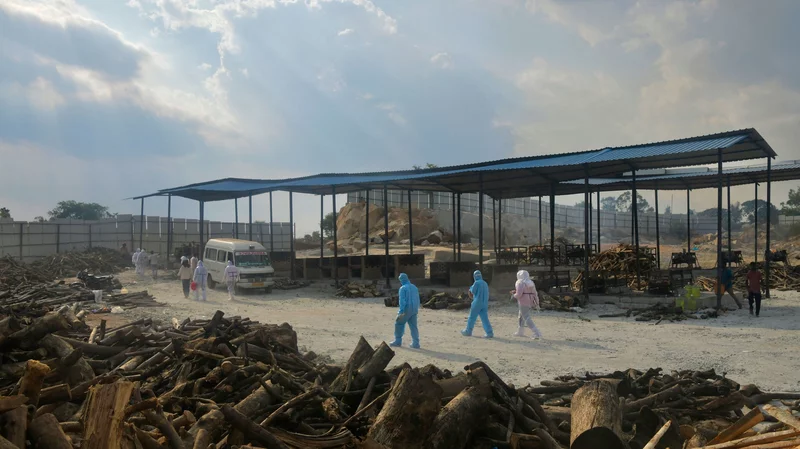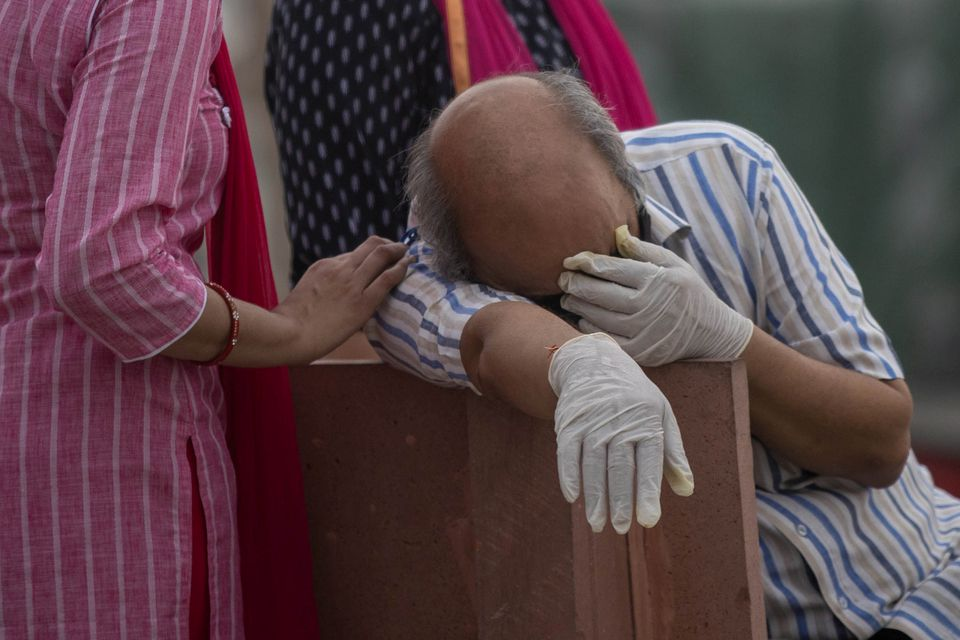Coronavirus latest news in Russia: Is 367 total cases a cover-up?
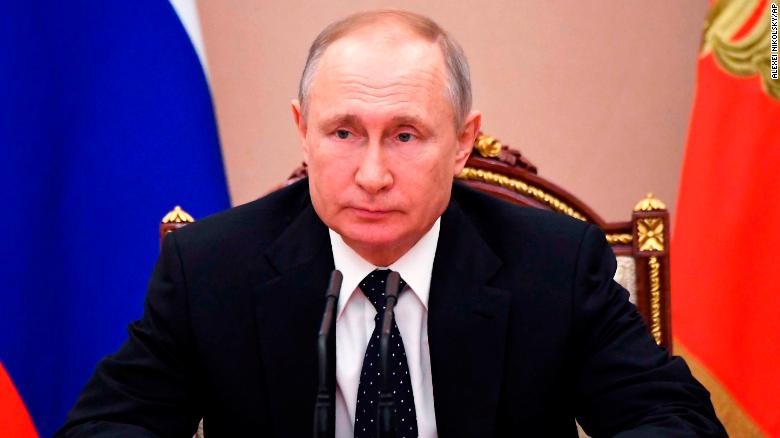 |
| Russian President Vladimir Putin responded to criticism over the number of recorded cases. (Photo: CNN) |
Russian President Vladimir Putin said this week his country managed to stop the mass spread of coronavirus -- and that the situation was "under control," thanks to early and aggressive measures to keep more people from getting the disease.
Does Russia have coronavirus under control? According to information released by Russian officials, Putin's strategy seems to have worked. The number of confirmed Russian coronavirus cases is surprisingly low.
The number of cases in the country are picking up, but is vastly lower than in other major countries in Western Europe, where there are already thousands of cases.
The country recorded its first death of a person with the virus on Thursday, a 79-year-old woman in Moscow. The government has moved to impose tougher measures, introducing a state of heightened readiness for the whole country and closing its borders to all foreigners until May 1. In Moscow, schools are closed and there are reports authorities are discussing locking down the city. Outside Moscow, the authorities have begun building a 500-person hospital to house coronavirus patients.
| Russia's early response measures -- such as shutting down its 2,600-mile border with China as early as January 30, and setting up quarantine zones -- may have contributed to the delay of a full-blown outbreak, some experts say. |
A strong record on testing
What really makes Russia an outlier, however, is the number of tests it is carrying out compared to its number of positive cases. Rospotrebnadzor, Russia's state consumer watchdog, said Saturday that it had run more than 156,000 coronavirus tests in total, putting it behind only China, Italy and South Korea.
"The director-general of WHO said 'test, test, test,'" Dr. Melita Vujnovic, the World Health Organization's representative in Russia, told CNN Thursday. "Well, Russia started that literally at the end of January."
Vujnovic said Russia also took a broader set of measures in addition to testing.
"Testing and identification of cases, tracing contacts, isolation, these are all measures that WHO proposes and recommends, and they were in place all the time," she said. "And the social distancing is the second component that really also started relatively early."
But with just 367 cases of the virus, Russia’s ratio of positive cases to the number of tests is the second lowest in the world, at 0.21%. Only the tiny United Arab Emirates comes lower at 0.11%, based on figures from the Our World In Data project at Oxford University. That number is puzzling, not least for a country of Russia’s vast size, with a population of 144 million and a long border with China. For example, the U.K. has done 64,600 tests and has over 3,000 cases. In Norway, 44,000 tests have turned up 1,700 cases.
“If they have done that amount of testing, it is remarkably low,” Paul Hunter, a professor of health protection at Britain’s University of East Anglia, told ABC News. “But clearly there are both suspicious and non-suspicious explanations for that. I would be very pushed to say that data is false based just on the numbers.”
But in a country where the state has a long history of hiding bad news from its citizens and the outside world, the anomalous figures have triggered suspicions of a cover-up. No solid evidence has so far emerged to support that theory, but even officials have begun to sound the alarm that the official numbers cannot be trusted.
Distrust among the population
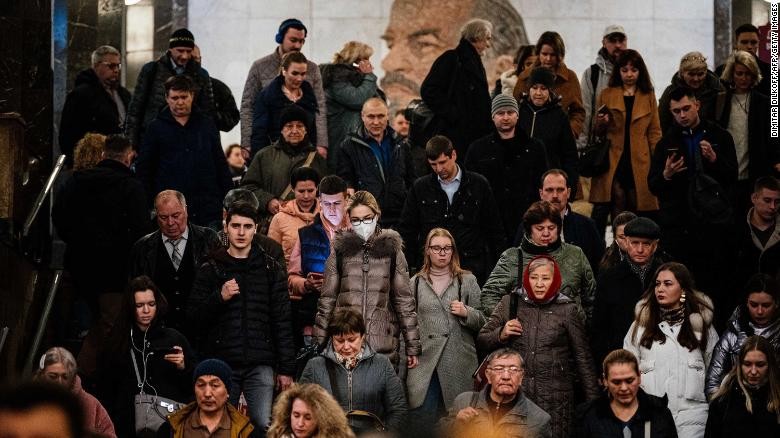 |
| People have still been crowding the Moscow metro system. (Photo: CNN) |
According to PCR News, the Russian test is based on the same method used by other countries.
But the Russian test, PCR News wrote, only detects the virus when there are over 100,000 copies of it per milliliter in a sample. That is far more than in other countries’ tests. A test in use in the U.S., for example, will pick up the virus with just 6,250 copies.
“That would mean it’s about 10-16 times less sensitive than what’s available in the U.S.,” Carmen Wiley, president of the American Association of Clinical Chemistry, told ABC News by a phone. At such a level, she said there was a risk the Russians were missing cases, in particular where people were asymptomatic.
Experts in most countries believe there are likely hundreds or thousands more people with the virus than those detected by tests.
Still, Russia contends with widespread public skepticism, a legacy of its Soviet past. On social media, Russians have raised questions referring to their country's poor track record of transparency, such as the coverup around the Chernobyl nuclear catastrophe in 1986 and the country's botched response to the HIV/AIDS epidemic in the 1980s.
Last year, authorities withheld details of a radioactive explosion involving a nuclear-powered missile in northern Russia, denying at first it had contained radioactive materials.
Russia’s government has insisted its numbers are accurate and senior doctors on state media have denounced suggestions that the real figures are much higher. President Vladimir Putin told Russians this week “the situation is on the whole under control” and that “Russia looks much better compared with other countries.”
Authorities have moved swiftly to counter what they see as misinformation. In early March, Russia's Federal Security Service and internet watchdog moved to take down a viral post claiming the real number of coronavirus cases was 20,000 and that the Russian government was covering it up. Facebook and Instagram users in Russia then started to see coronavirus awareness alerts linking to Rospotrebnadzor's official website.
News reports of shortages in protective equipment have also fueled skepticism. And some experts have raised doubts about the reliability of Russia's testing system, which depends on a single laboratory. A report by PCR.News, a media outlet for medics and healthcare professionals, pointed out that the only approved coronavirus testing system, produced by Vector in Novosibirsk, has a lower sensitivity than other virus tests, raising concerns about false negatives.
The test, which is produced by a state institute of virology and bio-technology in the Siberian city of Novosibirsk, has been treated as a government secret, making it hard to assess. But the Russian medical news site PCR News this week said it had acquired a copy of the test’s make-up.
The Russian government is aware of the issue and is preparing to launch a second test to act as a control for the first, Kurinny, the lawmaker, told ABC News. He said he was also worried Russia is only testing a "very narrow" group, confined largely to those arriving from countries deemed as hotspots for the virus and who show symptoms.David Berov, the first confirmed coronavirus patient in Moscow, wrote on Instagram that his second test showed a negative result, while the first and third tested positive for coronavirus.
"The virus was confirmed in my third test, it was not seen in my blood but was in my saliva," Berov wrote on March 5. "As I was told, they could barely see it so that's why they were in doubt for so long."
Vector did not respond to a request for comment. The Russian branch of the WHO, however, told CNN it received the specifications for the Vector test kits and the laboratory had been placed on the list of approved institutions used to confirm the coronavirus.
Cover-up allegations rebutted by Kremlin and the WHO
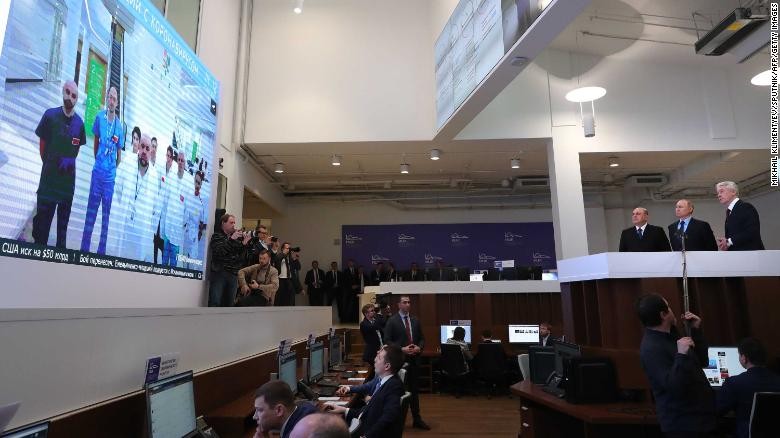 |
| Putin has put together a coronavirus information center in Moscow, pictured here. (Photo: CNN) |
Anastasia Vasilyeva, a doctor for Russian opposition figure Alexey Navalny and leader of the Alliance of Doctors union, made headlines with a series of videos in which she claims the authorities are covering up real coronavirus numbers by using pneumonia and acute respiratory infection as a diagnosis.
"You see they said the first coronavirus patient that died, that the cause of death was thrombosis," Vasilyeva told CNN. "That's obvious, nobody dies from coronavirus itself, they die from the complications, so it's very easy to manipulate this."
Moscow health officials denied the accusation and said they were testing pneumonia patients for coronavirus. The WHO's Dr. Vujnovic also was skeptical about Vasilyeva's claim.
"If there was a hidden, unrecognized burden somewhere it would be seen in these [pneumonia] reports," she said. "So I do not believe this is happening, which does not say that you might not see an increase of cases in the next period, because we have seen that in many countries."
Putin himself addressed the concerns about the statistics Wednesday, saying the government might not have the full picture but is not covering up the numbers.
"Here is the thing: the authorities may not possess the full information, because people a) sometimes do not report it, b) they themselves don't know that they are sick, and the latent period is very long," he said in a televised meeting. "But everything that is issued ... by the Ministry of Health is all objective information."
| This week the numbers have surged, with Russia adding 30 to 50 cases every day, and the count will most likely continue its upward trajectory as Russia expands its testing. Nevertheless, the local representative for the WHO says Russia is still doing relatively well, as the country tracks cases with epidemiological links to travel or family transmission. On Saturday morning, Rospotrebnadzor released a figure potentially more concerning than the number of confirmed cases -- 36,540 people are being monitored for possible coronavirus. Meanwhile, the government moved to impose more sweeping measures, canceling public events and closing Russia's borders to foreigners, with some exceptions. But politics as usual continues under Putin: the President has signed a decree scheduling a nationwide referendum on constitutional amendments that could see him stay in power till 2036 on April 22. The authorities have vowed to monitor coronavirus developments but so far have not changed the date. The world has recorded over 300,000 of infected cases and more than 13,000 deaths in this pandemic, with Italy's death tally stands at 5,476 - the highest in the world, following by China (3,261), Spain (1,765). |
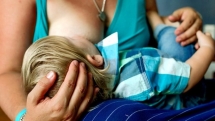 | Advice to COVID-19 infectious women who wish to breastfeed As COVID-19 escalates globally, WHO has advised infected women who wish to breastfeed. |
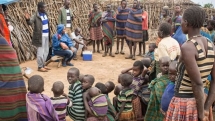 | First coronavirus infectious case confirmed in Uganda Uganda has confirmed its first case of coronavirus disease (COVID-19), according to the Health Minister Jane Ruth Aceng. All proper measures were undertaken to isolate ... |
 | How the world has changed amid coronavirus outbreak? (PICTURES) Several popular cities across the world from Paris, Rome, New York to Bangkok have become desolated with entertainment hubs, restaurants, and public gatherings shut down due ... |
In topics
Recommended
 World
World
India strikes back at terrorists with Operation Sindoor
 World
World
India sending Holy Relics of Lord Buddha to Vietnam a special gesture, has generated tremendous spiritual faith: Kiren Rijiju
 World
World
Why the India-US Sonobuoy Co-Production Agreement Matters
 World
World
Vietnam’s 50-year Reunification Celebration Garners Argentine Press’s Attention
Popular article
 World
World
"Will continue offering our full support to Indian govt": US FBI Director after Pahalgam attack
 World
World
"Great Leader": JD Vance Lauds PM Modi During His India Visit
 World
World
Trump’s Tariff Pause: A Strategic Move from “The Art of the Deal”?
 World
World


